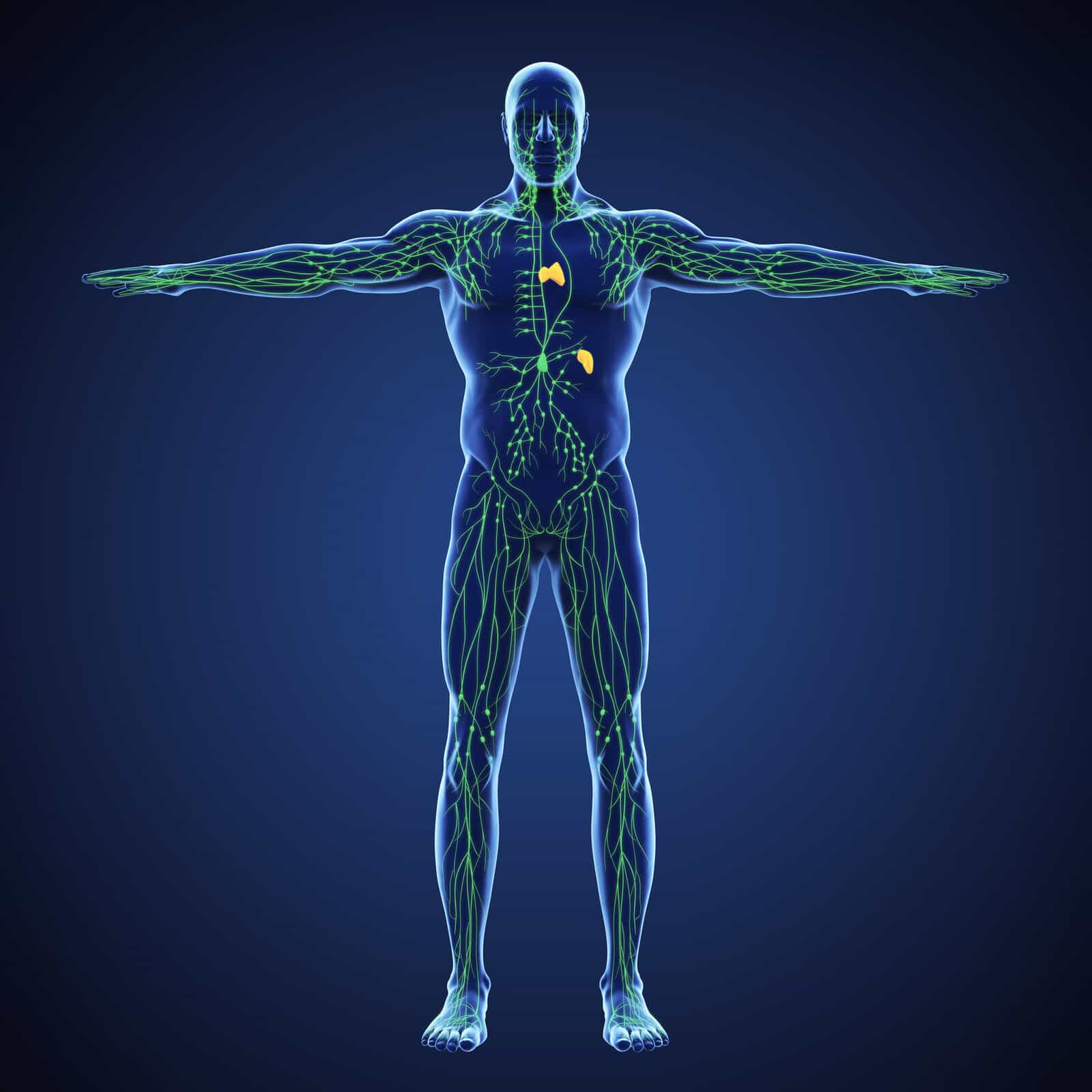Lymphatic System

The lymphatic system is a network of tissues and organs that help rid the body of toxins, waste, and other unwanted material. The system includes the lymph nodes, thymus, spleen, tonsils, and bone marrow.
The lymphatic system also helps to fight infection and disease by producing white blood cells.
The lymph nodes are small, bean-shaped organs that are located throughout the body. The nodes filter lymph fluid as it passes through them, trapping bacteria and other harmful substances.
The thymus is a small gland located in the chest that produces white blood cells known as T-cells. The spleen is a large organ located in the abdomen that filters the blood and produces white blood cells.
The tonsils are small, gland-like organs located in the back of the throat. They trap bacteria and other foreign particles that enter the body through the nose and mouth.
The bone marrow is the soft tissue inside the bones where blood cells are produced.
The lymphatic system plays a vital role in keeping the body healthy and free from disease. Without it, the body would be unable to remove toxins and waste material from the blood.
The system also helps to protect the body from infection by producing white blood cells.
Lymphatic System Topics
Spleen
Spleen or no spleen. You can survive! The spleen is an organ located in the upper left side of the abdomen, behind the stomach. It is about the size of a fist and has two lobes. The...
Lymph Nodes
Lymphatic cleansing! Lymph nodes are a part of the lymphatic system. They are small, bean-shaped organs that are located throughout the body. Lymph nodes filter lymph...
Immune System
Boost your immune system! The immune system is the body's natural defense against infection and disease. It is made up of a variety of cells, proteins, and organs that work...
Thymus
A butterfly gland lying at the base of the neck... The thymus is a small, bean-shaped organ located in the chest, behind the breastbone, and between the lungs. It is part of the body's lymphatic...
Tonsils
Have some ice cream to soothe that throat! Most people have two tonsils, one on each side of the back of the throat. The tonsils are made up of soft tissue and lymphocytes (white blood cells)....
Adenoids
Breathe easier! Adenoids are a mass of lymphoid tissue located in the upper part of the throat, behind the nasal cavities. They are also known as the pharyngeal...
Bone Marrow
Harness the power of bone marrow to treat even more diseases... Bone marrow is the spongy tissue found in the center of some bones. It produces blood cells and stores them in the marrow cavity. The bone marrow...